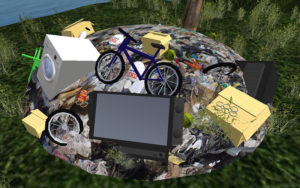REF Impact Case Study 2021
- Submitted to: 14 – Geography and Environmental studies
- Submitted title: Hazardous Waste and the Circular Economy

Summary
The research of Professor Margaret Bates and Dr Terry Tudor has focussed on the effective management of solid waste such as electrical and electronic equipment (WEEE) in developing countries and waster from healthcare facilities. This research has informed UK national policy development and waste management practices in countries such as Brazil, Ghana, Italy, Kenya. Nigeria and South Africa. This work has far reaching consequences in terms of dealing with huge volumes of waste, and the health and livelihoods of those communities affected.
Bates and Tudor have based their recommendations on research which explores the environmental, social and governance risks associated with the management of waste streams. They have demonstrated that these waste streams generate human health risks from bacterial and viral contamination (in the case of healthcare waste) and from inhaling toxic fumes when burning WEEE to salvage scrap metals. This research has been undertaken in conjunction with a range of public and private sector organisations and individuals including the All Party Sustainable Resource Group (2001-2020), the Chartered Institute of Wastes Management (2017-2020) and, in an advisory capacity to the E-waste Solutions Alliance for Africa, Professor Bates worked with companies such as DELL, HP, Nokia and Phillips to develop regulations, guidelines and infrastructure to support the recycling of WEEE.
Researchers
- Professor Margaret Bates
- Dr Terry Tudor